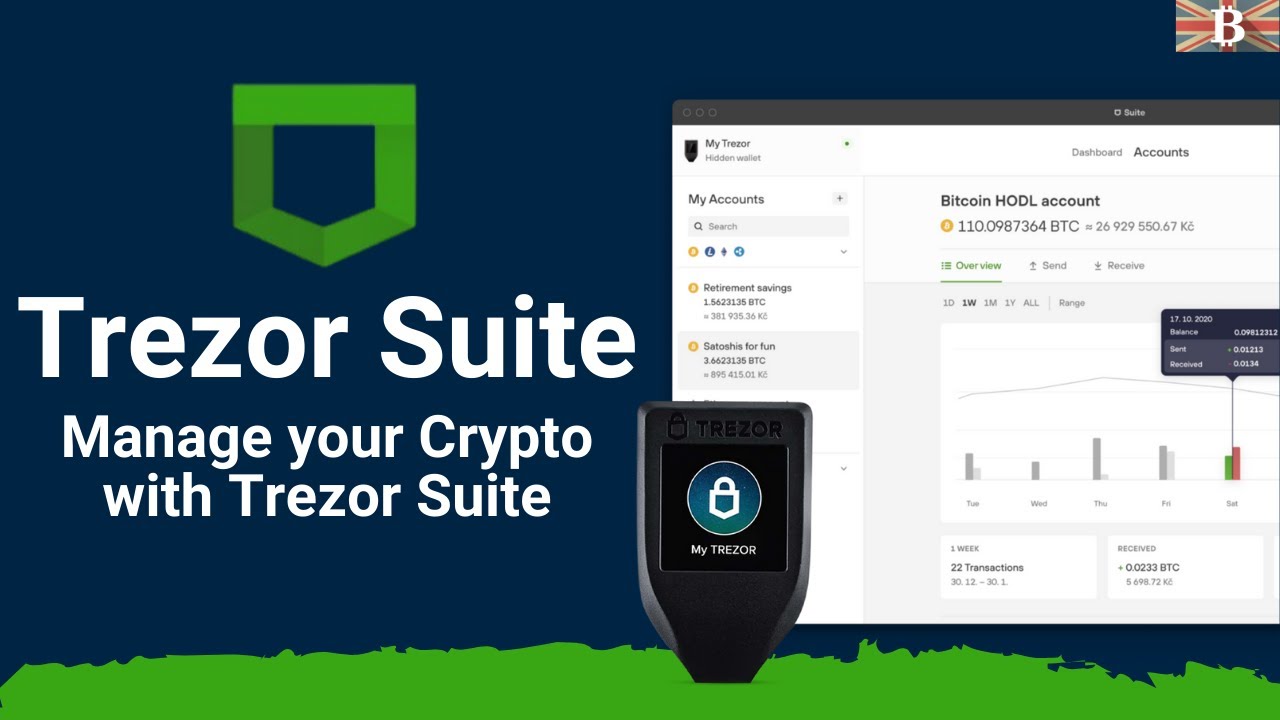In the rapidly evolving world of cryptocurrencies, security is paramount. With the increasing number of cyberattacks, hacks, and scams targeting digital assets, investors and enthusiasts are increasingly relying on hardware wallets to protect their holdings. Among the most trusted and widely used brands in this space is trezor wallet, a hardware wallet designed to safeguard cryptocurrency investments from online threats.
What is Trezor?
Trezor is a hardware wallet designed to store cryptocurrencies securely offline. Created by SatoshiLabs, a Czech-based company, Trezor was one of the first hardware wallets to enter the market, launching in 2014. Unlike software wallets, which store keys on a computer or smartphone, Trezor stores users’ private keys in a physical device, ensuring they are never exposed to the internet. This drastically reduces the risk of hacking and malware attacks.
Key Features of Trezor
- Offline Storage for Maximum Security: Trezor operates by keeping private keys offline, ensuring that even if your computer or phone is compromised, your assets remain safe. Transactions are signed within the device itself, so private keys never leave the wallet. This feature makes it highly resistant to online threats like phishing attacks, malware, and keyloggers.
- Wide Range of Cryptocurrency Support: Trezor supports over 1,000 cryptocurrencies, including popular ones like Bitcoin (BTC), Ethereum (ETH), Litecoin (LTC), and many altcoins. This flexibility allows users to store a diverse portfolio of digital assets within a single, secure device.
- Backup and Recovery: Trezor provides users with a 24-word recovery seed phrase during setup. This seed phrase acts as a backup, allowing users to recover their funds if the device is lost, stolen, or damaged. The recovery process ensures that access to digital assets is never permanently lost, even in the event of device failure.
- User-Friendly Interface: Despite its robust security features, Trezor is known for being user-friendly. The device connects to a computer or mobile phone via USB, and its interface guides users through the setup and transaction process. The wallet’s screen displays critical information, such as addresses and transaction details, ensuring transparency and control.
- Open-Source Software: Trezor’s firmware is open-source, allowing anyone to inspect the code for vulnerabilities and improvements. This openness fosters trust within the crypto community, as security experts can audit the wallet’s software for potential issues. The company behind Trezor, SatoshiLabs, regularly releases updates to enhance security and functionality.
Trezor Models: Trezor One and Trezor Model T
Trezor offers two main models of its hardware wallet: the Trezor One and the Trezor Model T. Each model caters to different user needs, with the Model T offering more advanced features and a higher price tag.
- Trezor One: The original model, the Trezor One, is a more affordable option that supports a wide range of cryptocurrencies. It has a small display screen and operates with buttons for user interaction. While it lacks some of the advanced features of the Model T, it remains a highly secure and effective option for most users.
- Trezor Model T: The Trezor Model T is the premium version, offering a color touchscreen and additional features such as support for more coins, a microSD card slot for additional encryption, and a more ergonomic design. It also provides a more intuitive experience, thanks to the touchscreen interface, which simplifies the process of entering passphrases and managing assets.
Trezor’s Role in the Cryptocurrency Ecosystem
Trezor’s contribution to the cryptocurrency ecosystem goes beyond simply offering a secure storage solution. It has been instrumental in shaping the conversation around cryptocurrency security. By prioritizing user control over private keys and advocating for the importance of self-custody, Trezor has been at the forefront of the “not your keys, not your coins” movement. This philosophy underscores the idea that users should retain full control over their assets rather than relying on exchanges or third parties.
Moreover, Trezor has played a significant role in popularizing hardware wallets, making it easier for users to adopt best practices for securing their crypto holdings. As the cryptocurrency space grows and evolves, the need for secure solutions like Trezor becomes more evident, as the risk of theft or loss remains a persistent challenge.
Security and Privacy
Trezor’s commitment to privacy and security is evident in its design and operational approach. Since it is offline, it protects users from online threats, but it also goes further with robust encryption and features like password managers and two-factor authentication (2FA). The device ensures that every step, from transaction signing to key storage, occurs in a secure, isolated environment, making it one of the most reliable hardware wallets available.
In addition, Trezor adheres to best practices in user privacy. The wallet does not collect any personally identifiable information, and the company emphasizes transparency, with its open-source software ensuring that users can trust the integrity of the device.
Future of Trezor
As the cryptocurrency landscape continues to mature, Trezor’s role in securing digital assets will likely expand. The rise of decentralized finance (DeFi), non-fungible tokens (NFTs), and other innovations within the crypto ecosystem will require even more advanced security measures. Trezor is well-positioned to meet these needs, with ongoing software updates and the potential for new hardware features to address emerging security challenges.
In addition, with increasing institutional interest in cryptocurrencies, hardware wallets like Trezor are becoming essential tools for securing large volumes of digital assets. As more individuals and organizations seek to protect their holdings, Trezor’s reputation for trustworthiness and security will likely continue to grow.
Conclusion
Trezor has cemented its place as one of the most reliable and secure solutions for storing cryptocurrency. Through its commitment to offline security, open-source transparency, and user-centric design, it has set the standard for hardware wallets in the cryptocurrency space. Whether you’re a casual investor or a seasoned crypto enthusiast, Trezor offers a trusted way to safeguard your digital assets and take control of your financial future in the decentralized world.

